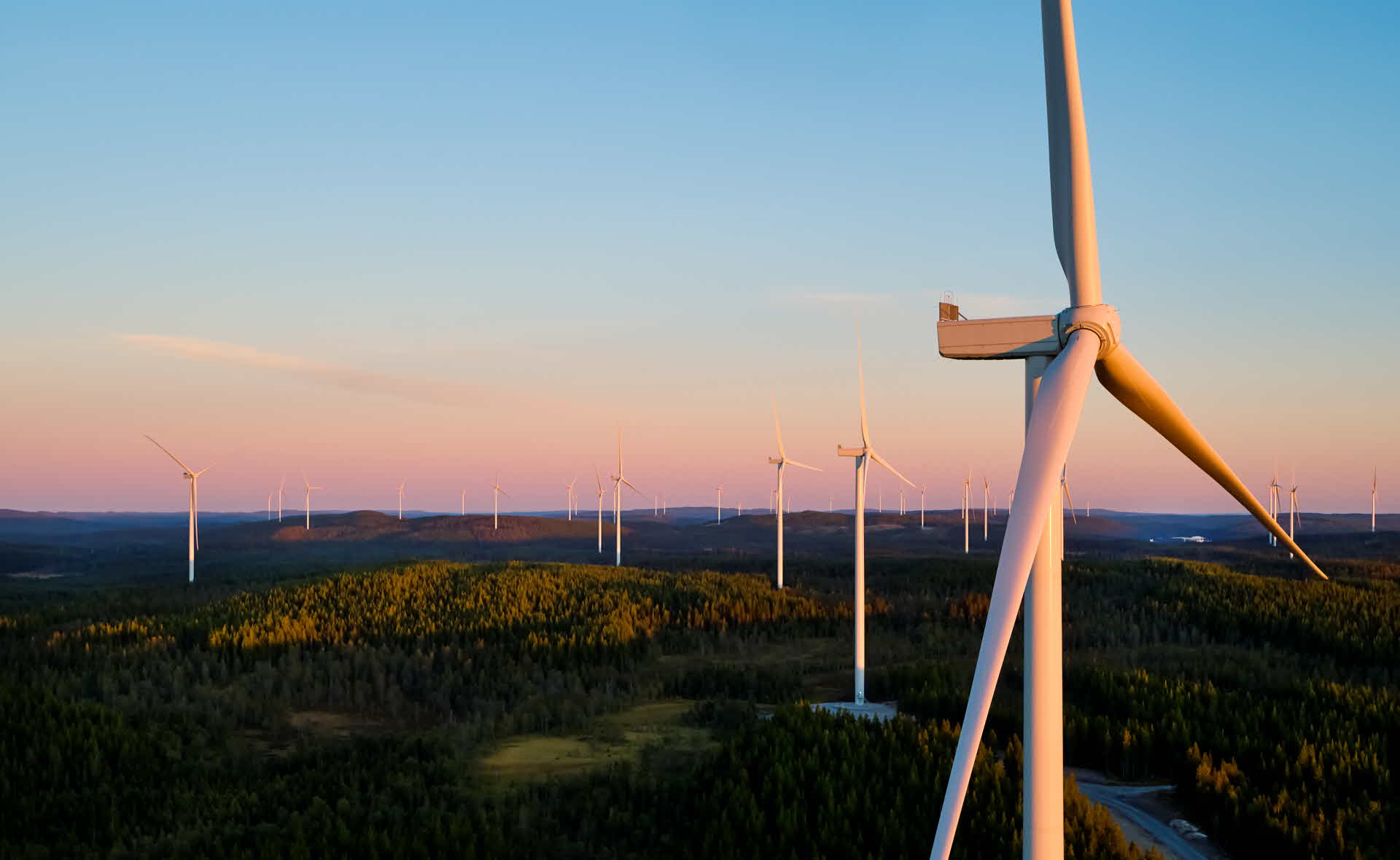
More wind power and improved networks are key to increased production of biofuels
- News
- Renewable Energy
- Sustainability
- Company news
Climate change demands entirely new industries and often extensive access to fossil-free electricity to deliver products that will replace fossil-based items. This means that the electricity grid issue becomes critical to enabling new investments. “We’re currently developing industrial land at Östrand pulp factory in Timrå Municipality and have been granted environmental permits for a biorefinery for climate-smart fuels, but before we know whether we’ll have access to an electricity grid that can distribute enough electricity, we can’t make any investment decisions,” says Roger Östlin, General Manager Sustainable Fuels SCA Renewable Energy.
Just west of Östrand pulp mill, SCA is building on this now new industrial land with advanced construction techniques to enable land development of a smaller part of Skönviken. A total of 20 hectares of land are being prepared and work is expected to continue until 2025.
SCA has already been granted environmental permits to build a biorefinery at the location capable of producing 300,000 tonnes of biofuel a year. But to date, no investment decision has been taken.
“The need, i.e., the demand, for biofuels exists for all types of vehicles, not least for heavy transport and aviation. The whole world is facing climate change and the transport sector is in great need of increased supply of green fuels, but deciding on a new factory is a long process that requires basic conditions to be in place,” explains Östlin.
In addition to demand for the product and permissions, access to bio-raw materials from the forest and a significant amount of fossil-free electricity are also required. It is estimated that around 3 TWh of electricity would be needed for a biorefinery the size SCA has been granted permission for, around 2 per cent of Swedish electricity use. SCA has previously announced its wish to contribute to increased electricity production through investments in wind power on its own land.
“The need for electricity is generally increasing relatively quickly, and to maintain competitiveness in the region, we want to increase production that roughly corresponds to the increased need that our own potential investment would entail. We simply need to ensure the production of more electricity,” says Östlin.
Even more important than increased electricity production is distribution to the site. Basically, this means that a possible future industry needs to be given access to the electricity grid and that the infrastructure is dimensioned to cope with those levels of transmission.
SCA has applied for space on the electricity grid, but since the electricity grid operators have a monopoly of the grid, routines are in place so that all applications are treated equally. In practice, this means that the electricity network owner may not prioritise concrete projects with permits and favourable conditions over more unfinished projects.
“Svenska kraftnät is looking at what can be done to improve the prioritisation, but as it looks now, we have to be patient and can’t go as quickly as we want. Of course, it feels a bit unfortunate that the market is crying out for renewable fuels while we sit and wait for news, but that’s how the rules look right now,” says Östlin.
“There should be better ways to prioritise between projects, so that mature and urgent projects are notified quickly. Arguably, it tends to be important not to delay society-critical change,” Östlin adds.
Photo: Torbjörn Bergkvist